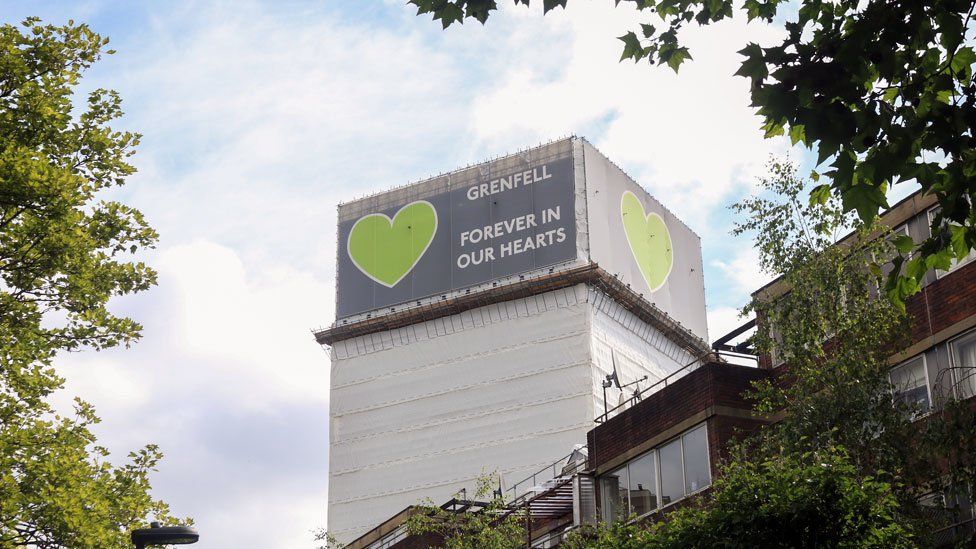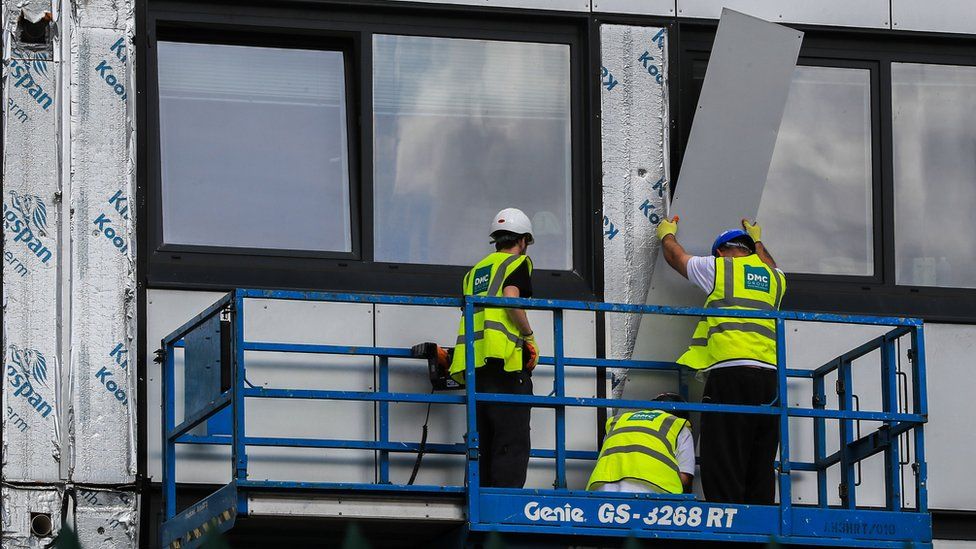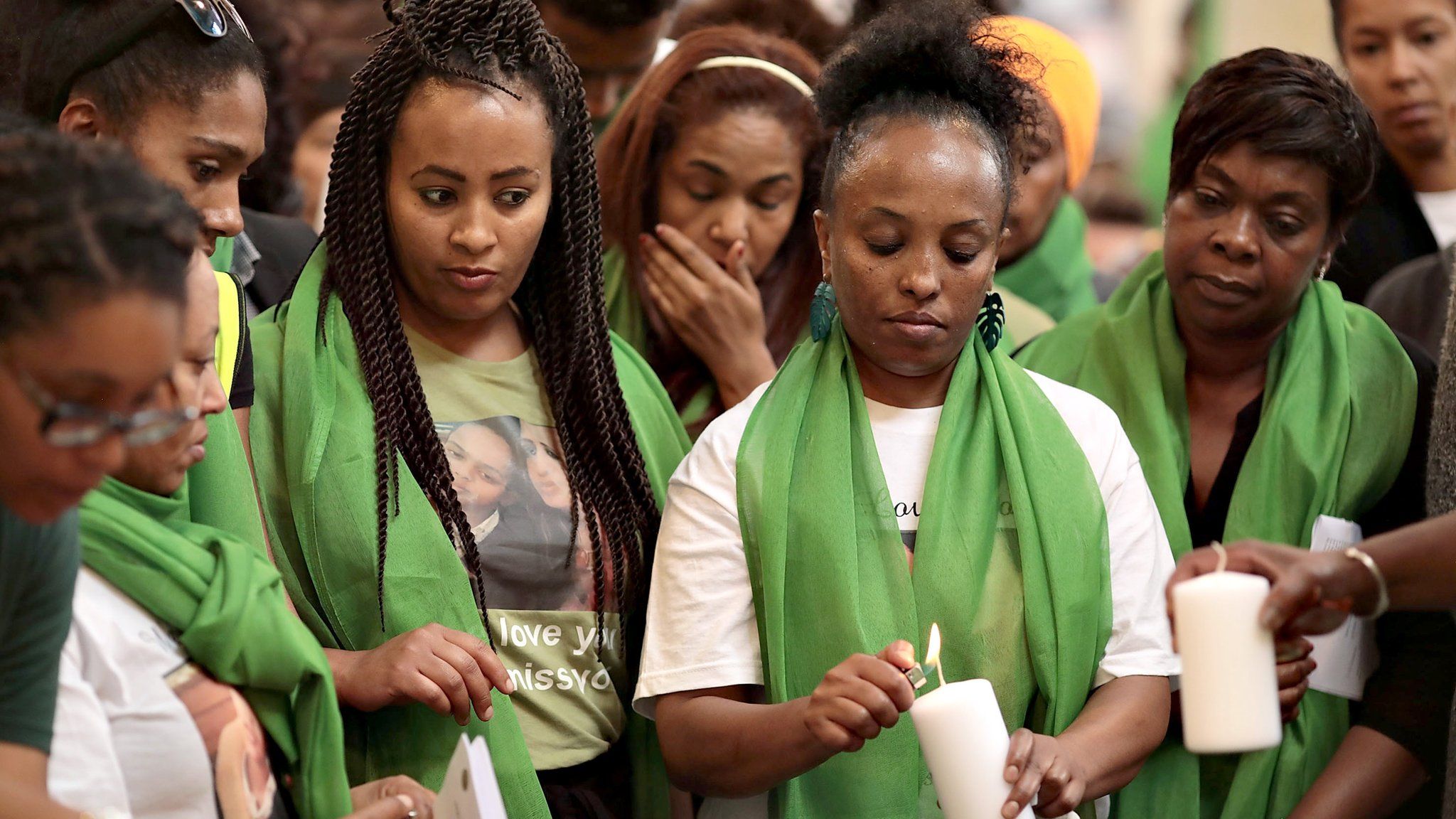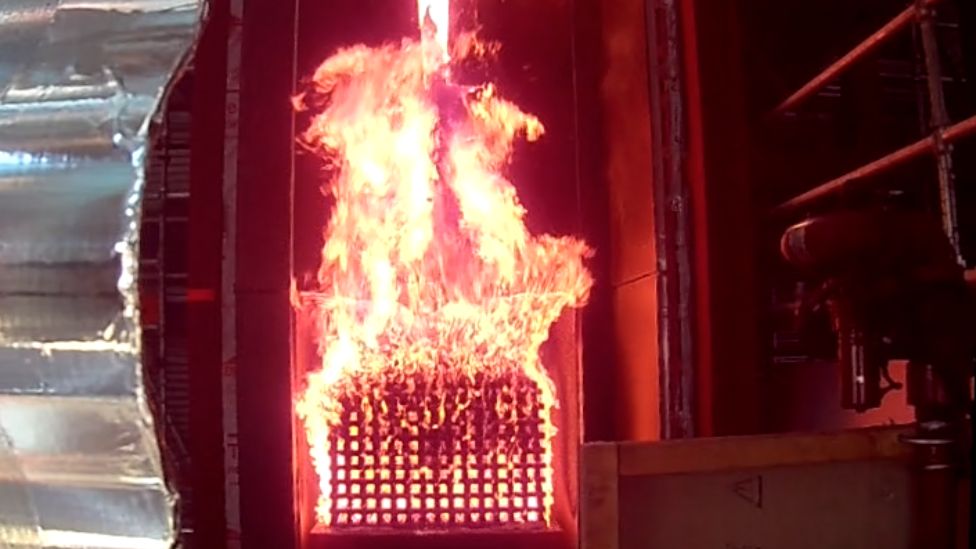Coroners investigating previous fires had warned regulation might be needed.

Image source, Getty Images
The first government minister to give evidence at the Grenfell Tower Fire public inquiry has defended his decision not to increase the regulation of fire safety despite warnings.
Northern Ireland Secretary Brandon Lewis MP was responsible for fire safety in the years before Grenfell.
Coroners investigating a 2009 fire and the 2013 death of a firefighter warned him that tighter rules might be needed.
Mr Lewis decided the fire safety industry should regulate itself.
The two coroners said regulation might be needed to stop the use of unqualified fire risk assessors but Mr Lewis told the inquiry he had ideological and practical concerns about increasing the role of government.
The inquiry has heard that between 2005 and 2017, when flames engulfed Grenfell Tower, there were growing signs that the housing industry was using ‘cowboys’ without formal qualifications, to assess buildings for fire risks.
‘Professionally reckless’
The assessor who inspected Grenfell Tower was described as “professionally reckless” by an expert witness because he signed off the building’s cladding as safe, without evidence.
The Grenfell fire happened after the deregulation of fire safety in 2005 – under the Labour government led by Tony Blair.
The change resulted in building owners and managers being responsible for employing private fire risk assessors rather than the previous system of fire brigade inspections.
However by the end of the decade the policy was being questioned.
The need to improve the inspection of residential buildings was highlighted by the coroner examining the deaths of six people at Lakanal House in Camberwell, South London in 2009.
Risk assessments had failed to pick up a series of problems at the tower.
The London Fire Brigade wrote to Brandon Lewis’s housing department in 2013 asking him to issue new guidance about safety inspections for the common parts of buildings.
Similar concerns were raised in 2016 by a coroner overseeing an inquest into the death of the firefighter Stephen Hunt in Manchester three years before.

Image source, PA Media
During this period Brandon Lewis had been briefed by his own officials that the 2010 Coalition government’s policy of ‘reducing the burden of regulation’ threw the issue into ‘sharp relief’.
His officials warned that ministers had expected the fire safety industry to ‘step up to the plate and work together to develop a strong self-governing sector’, but it had ‘failed to collaborate or engage’.
The government’s policy of ‘standing back’ was risky he was told and civil servants said he should continue to consider introducing a regulator to improve standards.
But Brandon Lewis did not act, and the government instead reiterated existing advice on the inspection of buildings.
Getting rid of ‘red tape’
Defending his decisions, he told the Grenfell Inquiry: “Conceptually it was unlikely I would be attracted to creating another body on top of bodies we already had in existence.”
“Our entire ethos was about devolving power from central government rather than bringing it in.”
The government at the time had an explicit policy of getting rid of ‘red tape’, including health and safety requirements.
“We were not shy of doing what was right,” Mr Lewis said, but the government’s position was that the fire safety industry had experts capable of providing the right advice to building owners without the need for a regulator.
He was challenged repeatedly by inquiry barrister Andrew Kinnear QC about what it would have taken to change the presumption he had against introducing a regulator.
Even if you regulate, the minister said, it would not necessarily stop ‘cowboy’ inspectors offering services which were not good enough.
“It wasn’t just ideological, it was practical”, Mr Lewis said.
Instead of this issue, he also pointed out, the government was at the time focused on other challenges – including a strike by the Fire Brigades Union.
The role of the government in the Grenfell fire is now the prime focus of the long-running public inquiry, which is in its final stages.
Government lawyers have already apologised for “past failures in relation to the oversight of the system that regulated safety in the construction and refurbishment of high rise buildings.”
A series of ministers will give evidence in the next few weeks.

You can follow the latest developments from the public inquiry on The Grenfell Tower Inquiry Podcast.
- 14 June 2020

- 30 March 2020
